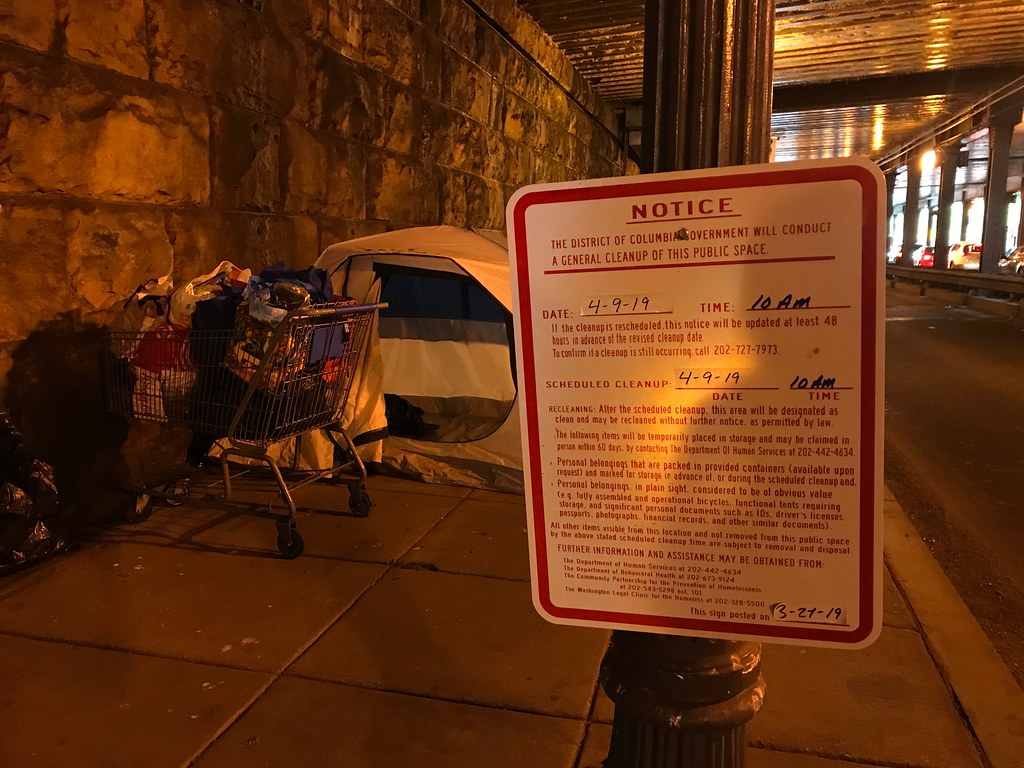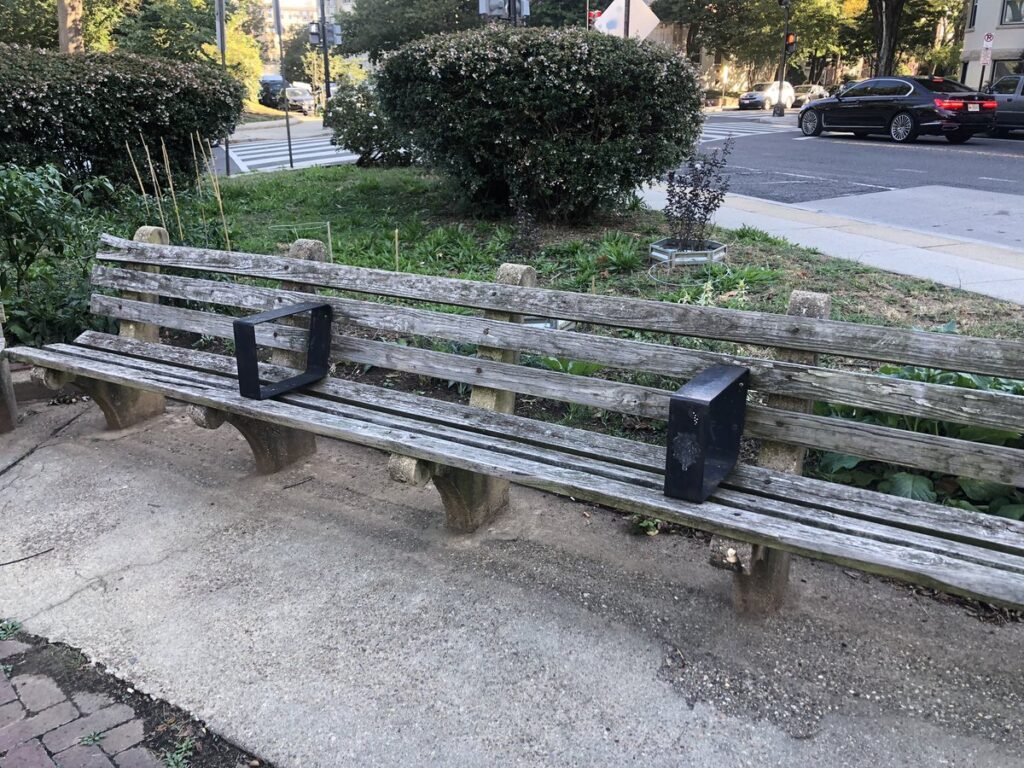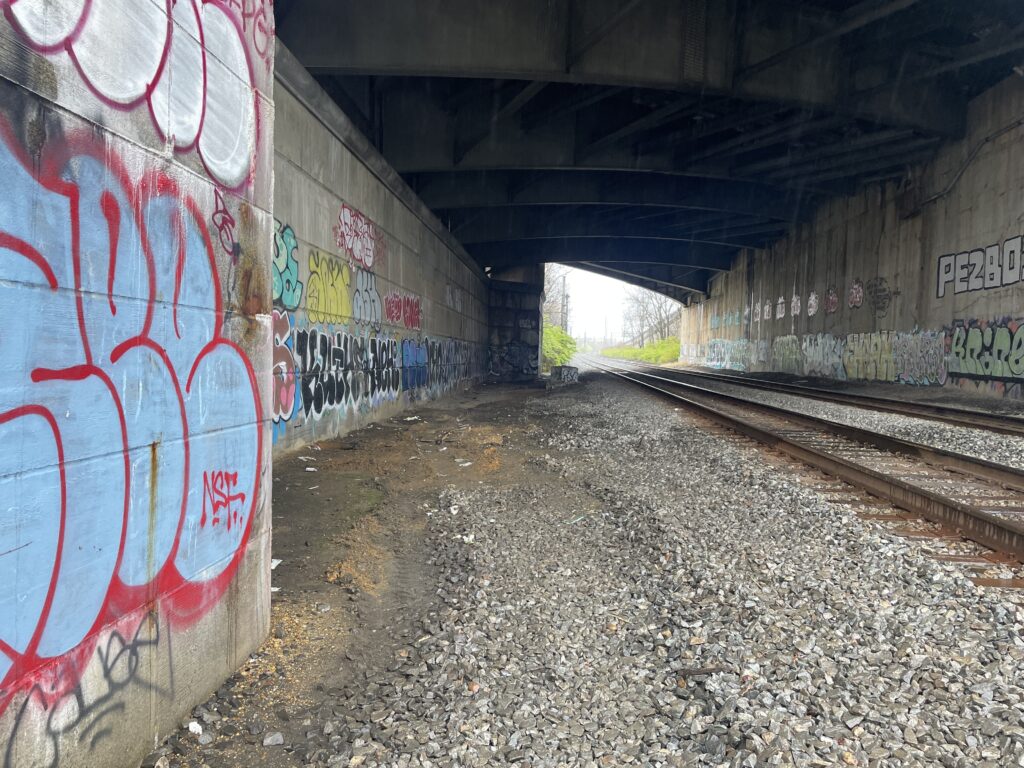Every two weeks, dump trucks and police cars roll under the K, L, and M Street bridges near Union Station. Tuesday, April 9 was no different.
At 9:30 a.m., people who reside under the K, L, and M bridges needed to start packing up their personal belongings. In less than 30 minutes, three tents and other personal items were loaded up into a few shopping carts and pushed 100 feet away to the corner of K and 2nd streets NE. Once the clock struck 10 a.m., people watched as D.C. city workers cleaned up trash and any remaining personal belongings that were left under the bridge. Then, the former residents promptly returned to and moved their belongings back into the same spots they had just vacated.
The frequency of encampment cleanups conducted per year has increased every year under the Bowser administration, from 29 in 2015 to 100 in 2018, according to city data. Between 20 and 30 people regularly live in the M, L, and K Street underpasses between First and Second streets NE.
[Read more: Light-based art installations and security cameras are being installed in the M Street and L Street underpasses]
This week, Kelly Jeong, who coordinates encampment sweeps on behalf of the Office of the Deputy Mayor for Health and Human Services, approached people who stored their belongings at K Street. and 2nd Street. and told them they could not put their belongings there anymore. Several attorneys with the Washington Legal Clinic who were present at the cleanup pointed out there were no red signs indicating that this was a cleanup area, to which Jeong said someone removed the signs and vowed to put signs up for the following cleanup.

Many residents dislike Jeong and believe she has no sympathy for the situation they are living in.
“’You’re trying to help.’ No, you’re f***ing not. You’re just annoying people,” lamented Heather Adams, who lives under the M street bridge near the NoMa-Gallaudet University Metro station.
Adams moved her belongings and her boyfriend’s belongings from under the bridge to a grassy spot at the end of 2nd Street on M Street. The city tried to throw away all of Adams’s belongings, despite the fact there was not a sign stating there would be a cleanup in that location. Additionally, there was a tent on the grass for at least four weeks (two cleanup periods) which did not get removed.
“I try to follow the rules, but you still want to f*** with me,” Adams said. “Jeong, I’m irked, to say the least.”
Jeong agreed to let the tents on the grass stay there for two more weeks but made a similar promise as she did with the areas on K and 2nd streets: she would put up signs and have that area cleaned at during the next cleanup.
An attorney present at the cleanup, who declined to give their name, is a lawyer on a case where several homeless residents are suing D.C. violating their Fourth Amendment rights with these street cleanups. The Fourth Amendment protects against unreasonable searches and seizures.

According to D.C.’s encampment protocol, the city is supposed to provide residents with storage containers for any items they wish to save, and the city cannot discard any items considered valuable, like IDs, documents, tents, bikes, and more. The Department of Human Services is also supposed to create an inventory and save all belongings deemed valuable for 60 days before disposing of them. D.C. rarely saves valuable items and the plaintiffs brought this case against the city after they believe their belongings were wrongfully discarded.
Adams supports the lawsuit, but overall, she wants more support from the city. The Bowser administration has made record investments in homeless services, guided by a 5-year strategic plan to overhaul the city’s services and make homelessness “rare, brief and nonrecurring” by 2020. The plan, Homeward D.C., prioritizes goals for reducing family homelessness, veteran homelessness, and chronic homelessness — long or repeating episodes of homelessness coupled with a disability. However, in the middle of this systems change, unmarried, able-bodied adults without children who are living on the street, such as Adams, can feel like there are no resources nor compassion for them. Engaging the encampment protocol adds tension to this perspective.
“Why do I need to bring a child into this world to get help?” Adams said.








